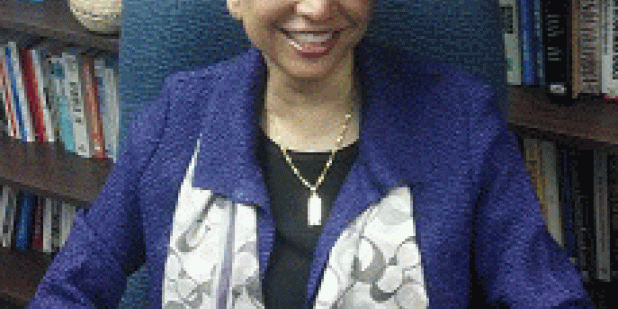Happy Lunar New Year from the USC US-China Institute!
A Chinese Trading Post in Oshikango, Namibia
UCLA hosts a lecture by Margaret C. Lee as part of the “Economic Change and Emerging Asia-Africa Interactions” lecture series.

On the Namibian side of the Angolan/Namibia border there exists a Chinese Trading Post in which Chinese traders own the majority of the land and are the largest employers in the area. Each day large numbers of Angolans cross the border to buy cheap Chinese goods. Such goods can only be paid in US dollars. There exists a great deal of controversy in Oshikango over the presence of the Chinese traders. Since it is an export processing zone, imported goods enter the area duty free, thus depriving the Namibian government of much needed revenue. In addition, workers complain of unfair labor practices by the Chinese traders, while the Namibian government appears to be protecting the Chinese traders against Namibian employees. How the Chinese managed to acquire most of the land at the border and the refusal of the Namibian government to address these and other issues is the subject of my presentation.
Margaret C. Lee is Associate Professor of African Studies in the Department of African, African American, and Diaspora Studies, University of North Carolina at Chapel Hill (UNC- Chapel Hill). Prior to coming to UNC, Professor Lee was a Visiting Scholar with the African Studies Program at the Paul H. Nitze School of Advanced and International Studies at Johns Hopkins University (Washington, DC). She has taught at Johns Hopkins University, Georgetown University, American University, Spelman College, and Tennessee Technological University. Professor Lee has been a Visiting Scholar at the University of Oslo (Norway) and a Research Fellow at the Africa Institute of South Africa (Pretoria). Between 2002 and 2008, Dr. Lee was an adjunct faculty with the African Center for Strategic Studies of the National Defense University in Washington, DC.
Professor Lee has served as a consultant to the Council on Foreign Relations, the US Department of Education, and USAID. She is the author of The Political Economy of Regionalism in Southern Africa (2003) and SADCC: The Political Economy of Development in Southern Africa (1989); and co-editor of Unfinished Business: The Land Crisis in Southern Africa (2003) and The State and Democracy in Africa (1997, 1998). In addition she has published numerous journal articles, chapters in books, occasional papers, etc.
Dr. Lee has received research support from the Harry Frank Guggenheim Foundation (New York) and from 2003 to 2013 was an advisor to a Guggenheim project designed to train the next generation of African scholars. She has lectured widely, both in the United States and abroad on various topics related to her research on the political economy of Africa.
Professor Lee’s most recent book is Africa’s World Trade: Informal Economies and Globalization from Below. The book was commissioned by the Nordic Africa Institute in Uppsala, Sweden and will be published in 2014 by Zed books (London and New York); the Nordic Africa Institute (Uppsala, Sweden); and the Africa Institute of South Africa (Pretoria South Africa). In order to complete the book she received a generous research grant from the Nordic Africa Institute, the African Studies Center at UNC-Chapel Hill, as well as a UNC-Chapel Hill Carver Grant. In 2011 Dr. Lee was a John L. Turner Fellow with the Institute for the Arts and Humanities at UNC-Chapel Hill. Finally, Dr. Lee was just awarded the Provost Senior Faculty Research and Scholarly Leave for the fall of 2014. She will be completing her next book on Africa’s International Trade Regimes: Globalization from Above.
Her teaching interests include Southern Africa, The 21st Century Scramble for Africa, and China-Africa relations.
This event is part of the “Economic Change and Emerging Asia-Africa Interactions” lecture series. The last two decades have witnessed a shift in the cultural, political and economic geographies of Africa and Asia. The changing relations between the countries and the people of the two continents are among the most visible and striking evidence of the move from a unipolar to a multipolar world. UCLA’s African Studies Center and Asia Institute are joining forces to invite speakers with deep knowledge of both continents and their interactions to explore the topic of “Economic Change and Emerging Asia-Africa Interactions”. Over the next six months, the series will ask how we can understand the growing ties between Africa and Asia from vantage points that do not start from or converge on US and Europe. The series will consider both “top-down” relations – international relations, government policies and corporate relations – and “bottom-up” relations, or how ordinary citizens are experiencing and responding to the growing presence of Asia in Africa and of Africa in Asia.
Cost: Free and open to the public
Pay-by-space & all-day ($12) parking available in lot 3.
Featured Articles
We note the passing of many prominent individuals who played some role in U.S.-China affairs, whether in politics, economics or in helping people in one place understand the other.
Events
Ying Zhu looks at new developments for Chinese and global streaming services.
David Zweig examines China's talent recruitment efforts, particularly towards those scientists and engineers who left China for further study. U.S. universities, labs and companies have long brought in talent from China. Are such people still welcome?






